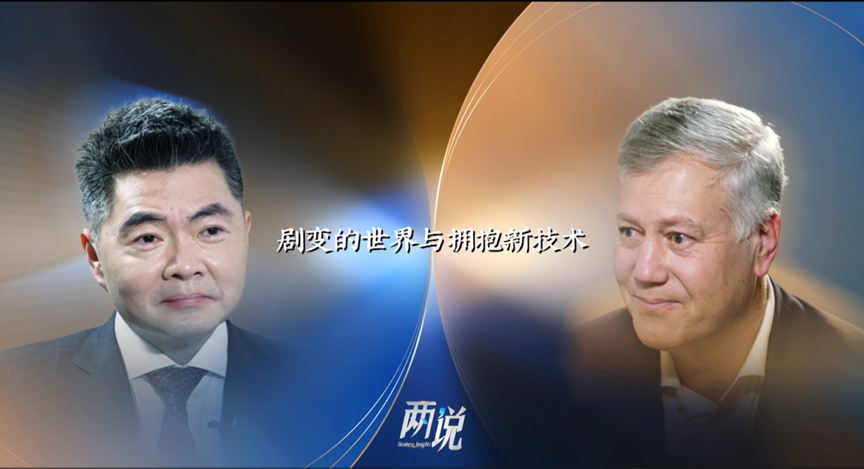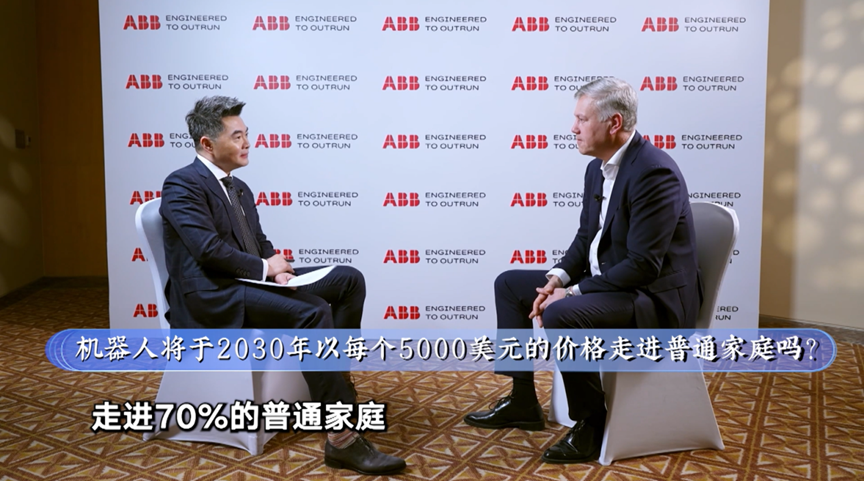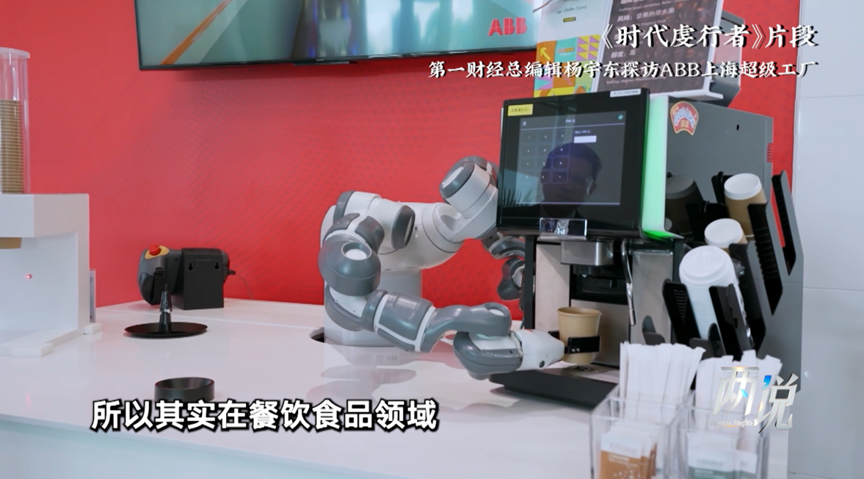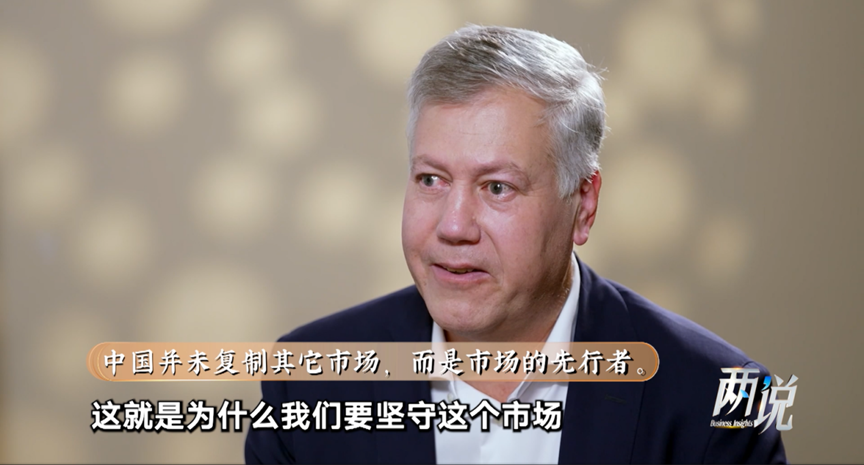This past weekend, Beijing hosted the world’s first humanoid robot half-marathon. As people eagerly watched, one couldn’t help but ask, is there really a distinction between humanoid and non-humanoid robots? Has China’s robotics industry developed to the point of running marathons? What is the relationship between robots and artificial intelligence? When will robots enter households? Can they make hand-brewed coffee? How much does a household robot cost?
In this episode of “Two Views,” we will answer these questions one by one. The program features an exclusive interview with Morten Wierod, President and CEO of ABB Group. ABB is one of the world’s four major industrial robot manufacturers. With years of experience working in China, Wierod believes that China’s robotics industry is at the forefront of the world and is not merely copying examples from elsewhere, but is a pioneer. The program will provide a detailed analysis of robot classification, functions, the relationship with artificial intelligence, development stages, and China’s position in the global robotics landscape.
 Artificial Intelligence andRobotics
Artificial Intelligence andRobotics
Some say we are entering the era of artificial intelligence, while others claim we have already entered the era of robotics. What is the relationship between the two? Manufacturing robots is ABB’s specialty, and Wierod’s response is quite thought-provoking: robots and artificial intelligence are two sides of the same coin.
Currently, robots are mainly divided into two categories: humanoid robots and industrial robots. Humanoid robots are equipped with devices that possess human-like characteristics, and artificial intelligence technology serves as the super brain of the robot, enhancing its cognitive abilities. As a result, robots can now see, hear, converse, and perceive, unlike in the past when artificial intelligence was underdeveloped and communication with robots relied solely on software or programming. With the advancement of artificial intelligence, the intelligence level of robots has significantly increased.
Wierod repeatedly emphasizes in the program: in the field of robotics, the upper body determines everything; artificial intelligence, along with human spirit and capabilities, is transforming the entire landscape of robotic advancement. Today, human tactile feedback has also been integrated into robotic technology. For instance, when a robot retrieves an object from a box, it can visually identify what the object is, and when it picks it up, it neither exerts too little force causing the object to drop nor too much force damaging it.
 When Will Robots Enter Ordinary Households?
When Will Robots Enter Ordinary Households?
There is a saying that robots will enter most ordinary households by2030, at a price of$5000 each. However, Wierod believes that it will take time for robots to enter ordinary households, and it won’t happen that quickly. Just like the discussions we have today about autonomous driving technology in cars,10 years ago, we thought that within the next5 years, every car would have autonomous driving capabilities, but today, we still cannot sit back and relax in the back seat and fully enjoy autonomous driving. The civilian use of robots is not as fast as imagined! However, in high-precision industrial fields, the pace of robotic technology advancement is faster than ever: body forming, painting, printed circuit board assembly, and even in the food and beverage industry, industrial robots are increasingly visible.
Of course, the situation may be more optimistic; for example, there are restaurants in Shanghai usingABB‘s robots to make noodle soup and even various customized noodle dishes. To answer the initial question of this article, can robots help humans brew coffee? Recently, during a visit to ABB’s Shanghai super factory, First Financial’s editor-in-chief Yang Yudong had a robot brew him a cup of coffee, and it was even a latte. China’s robotics industry is rapidly growing: from initially importing foreign-manufactured robots to conducting local research and development in 2005, China is now becoming one of the world’s centers for robotics research and innovation. Currently, China is on the path of high-quality growth, which means that production efficiency has become a top priority, and artificial intelligence and robotics perfectly align with this era’s theme.
China’s robotics industry is rapidly growing: from initially importing foreign-manufactured robots to conducting local research and development in 2005, China is now becoming one of the world’s centers for robotics research and innovation. Currently, China is on the path of high-quality growth, which means that production efficiency has become a top priority, and artificial intelligence and robotics perfectly align with this era’s theme. Artificial Intelligence is Still in Its Early Stages; Investment is Far from OverheatedEfforts to Improve Industry Efficiency Present Excellent Business Opportunities for AI and Robotics CompaniesRobots Will Not Enter Households as Quickly as People ImagineChina is a Leader, Not a Copier in the Field of AI and Robotics
Artificial Intelligence is Still in Its Early Stages; Investment is Far from OverheatedEfforts to Improve Industry Efficiency Present Excellent Business Opportunities for AI and Robotics CompaniesRobots Will Not Enter Households as Quickly as People ImagineChina is a Leader, Not a Copier in the Field of AI and Robotics
More Exciting Insights from the Guest
Please Follow
Oriental TV Wednesdays at 22:30
First Financial Saturdays at 22:00
“Two Views”
Click to read the original text
Watch the program for detailed content